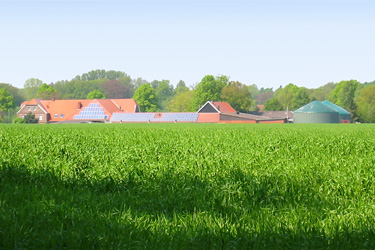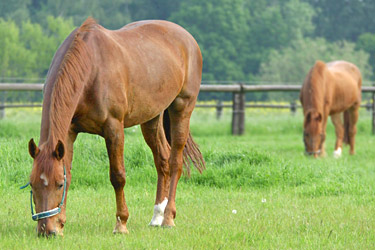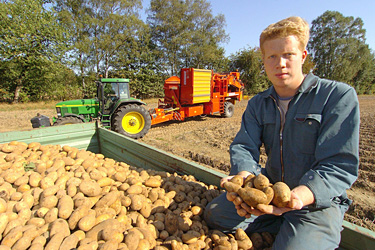Additional excursion no. 1: Agricultural innovations and traditions of East Münsterland






Description of the region
East Münsterland with its districts of Warendorf and Gütersloh is located in the northern part of North Rhine-Westphalia and is characterised by widespread and flat plains with sandy soils on the banks of the river Ems. This landscape enables different opportunities for cultivation. The southern part is characterized by gentle hills with heavy clay soils. Local Farmers grow all sorts of cereals around here. Beyond the Teutoburg Forest – in the East – the region is covered by highly fertile clay soils. There is a maritime climate with an annual precipitation of approximately 750 millimetres.
The horse city of Warendorf
Münsterland is a traditional region for horse breeding. The North Rhine-Westphalian county stud in Warendorf houses a facility with performance-tested stallions of warm- and cold-blooded races. Moreover, the organisations “Deutsche Reiterliche Vereinigung”, “Deutsches Olympiade Komitee für Reiterei“ (DOKR) and the German institute for horse riding “Deutsche Reitschule” have their headquarters in Warendorf.
Cultivation and processing of potatoes
Uwe Pahmeyer’s farm in Werther, Gütersloh district, is specialized in the cultivation and processing of potatoes for the production of semi-finished and finished goods. He delivers his products to both regional markets and big trading companies and supermarkets.
Aquaculture as a new business unit
Ulrich Schulte in Halle/Westfalen, Gütersloh district, turned his former mixed farm into an indoor catfish farm. He commercialises his fish products across Germany.
Gütersloh – an administrative district with both industry and agriculture
Gütersloh district is not only famous for its interesting and economically powerful agriculture that is focused on meat refinement, but it also features various industries, such as food production, mechanical engineering and the manufacturing of furniture. Traffic infrastructures are currently being enhanced by completing the autobahn BAB A33 between the BAB 30 and BAB 2 which will reduce travelling times to Northern Germany and to the Netherlands.
Guide: Ulrich Bultmann, Agricultural Chamber of North Rhine-Westphalia


 De
De